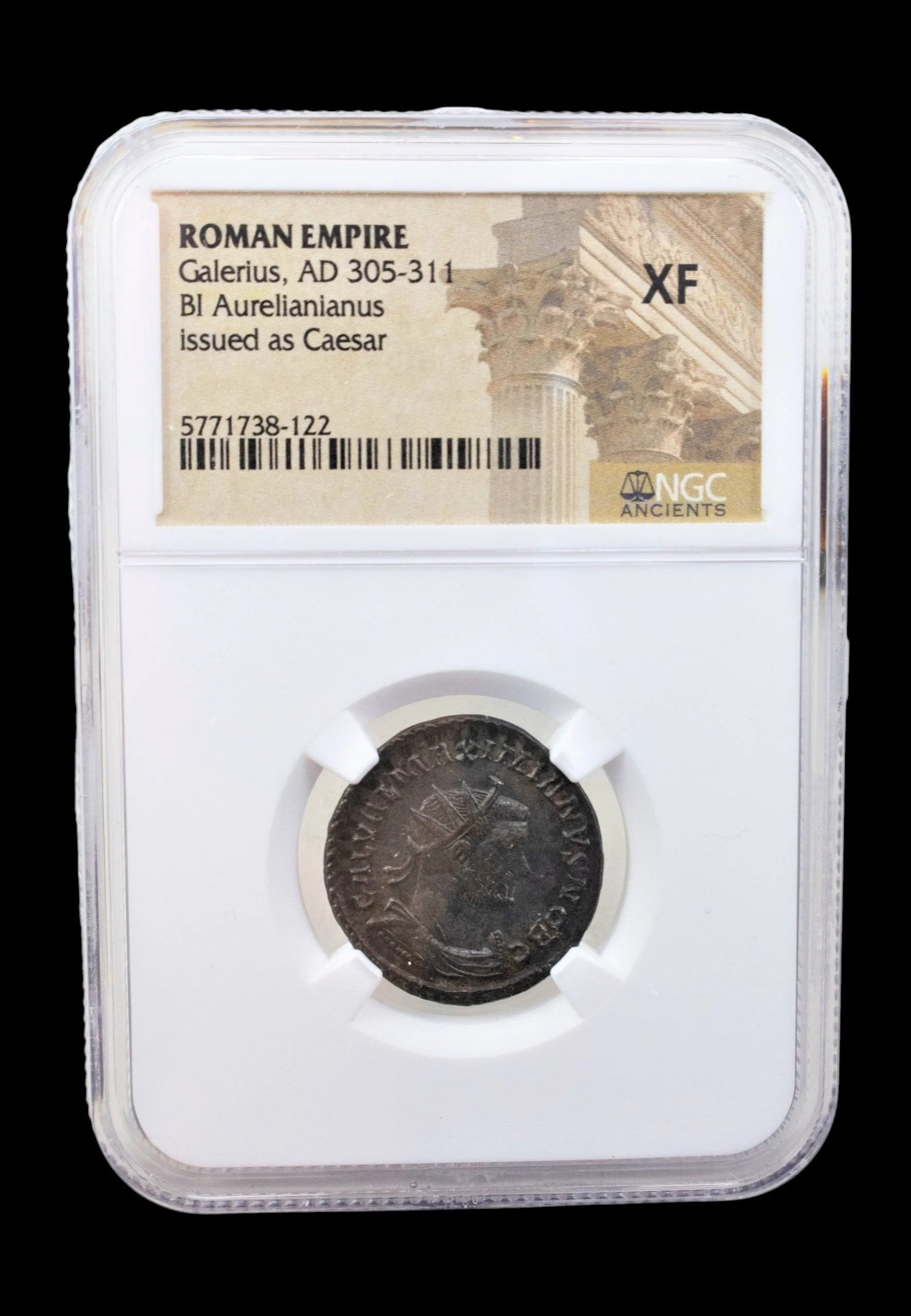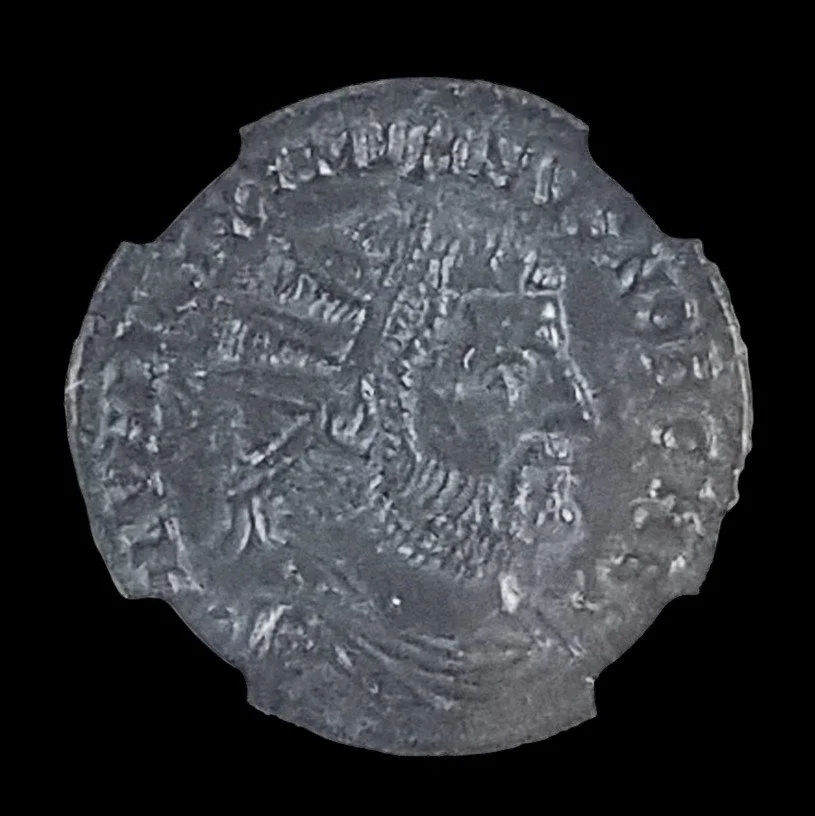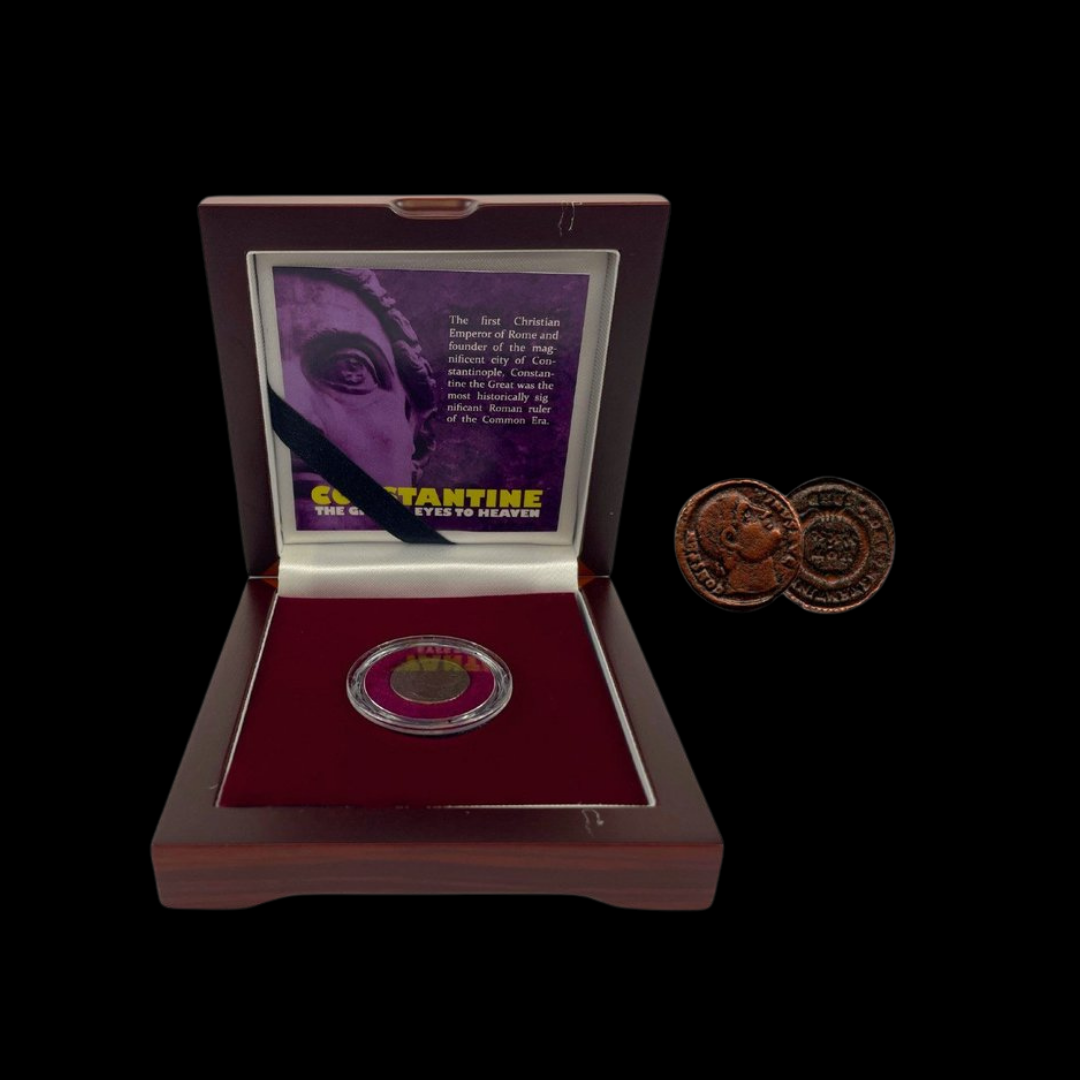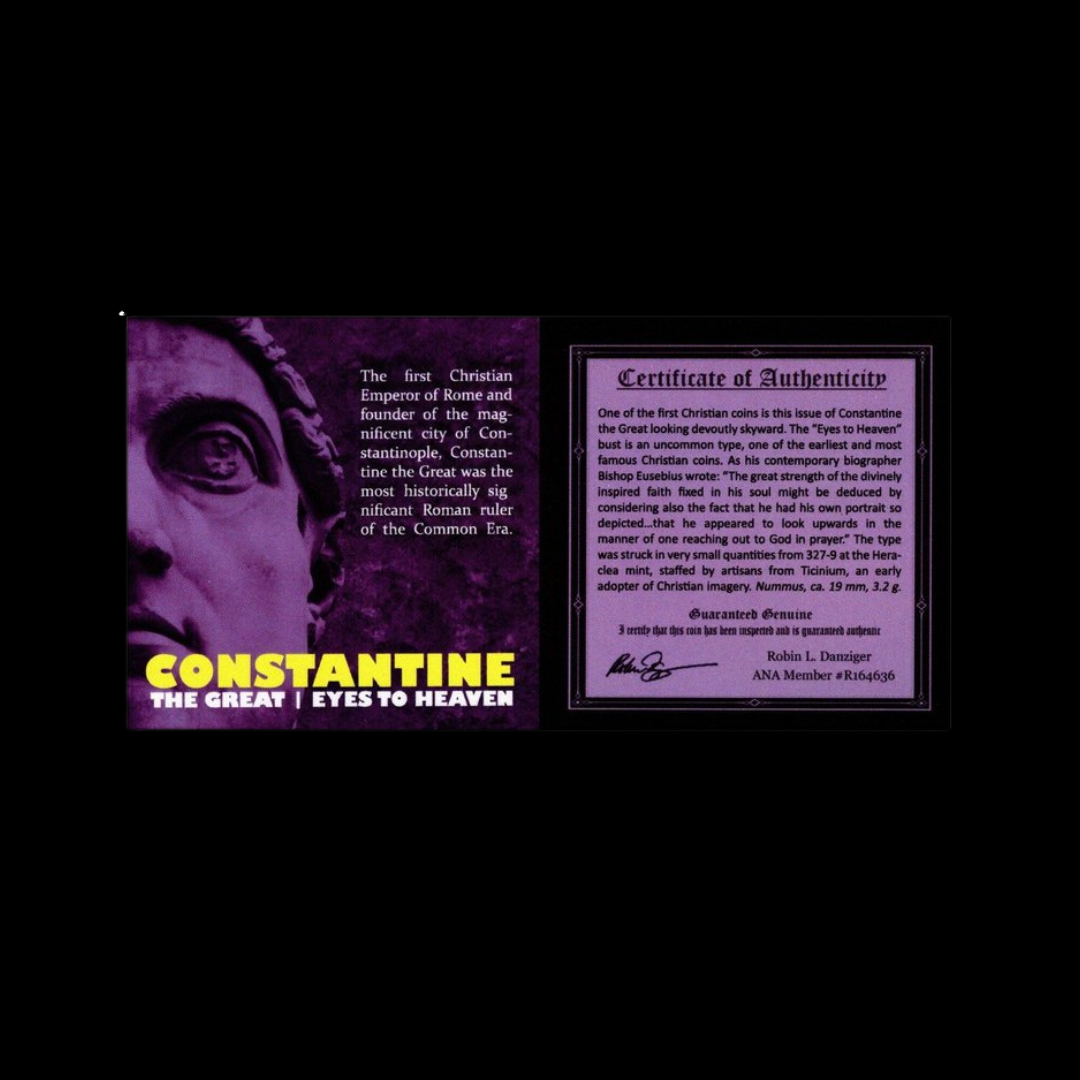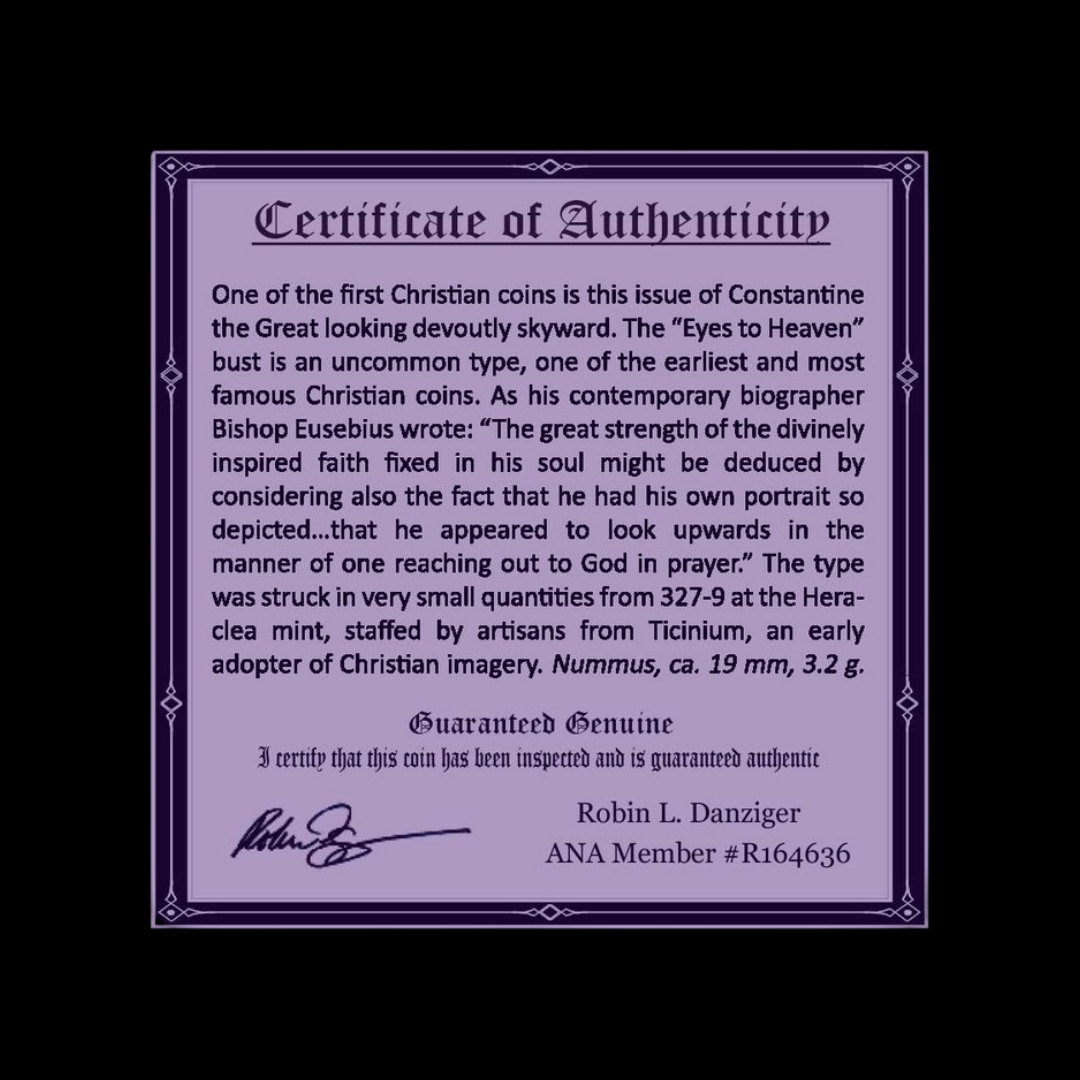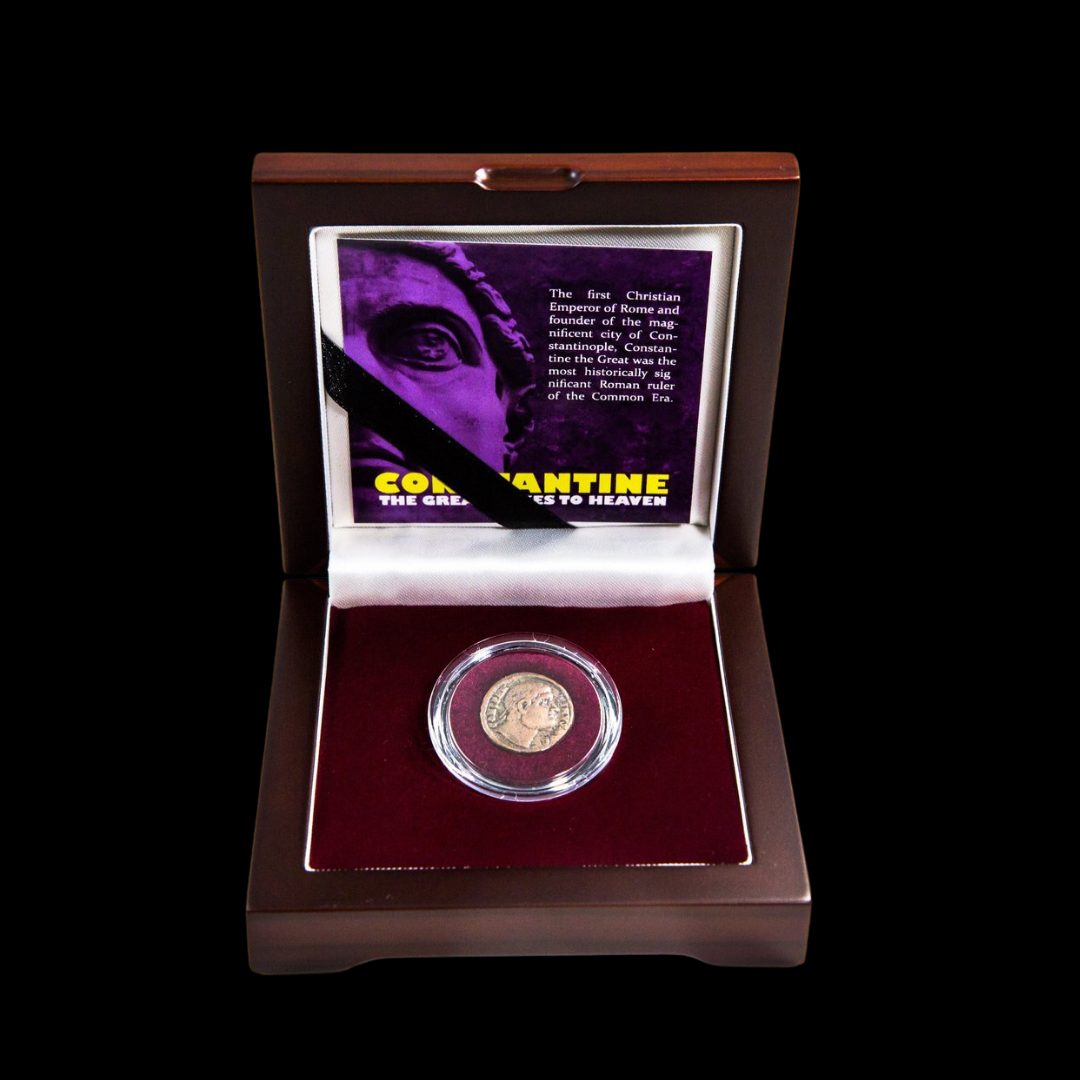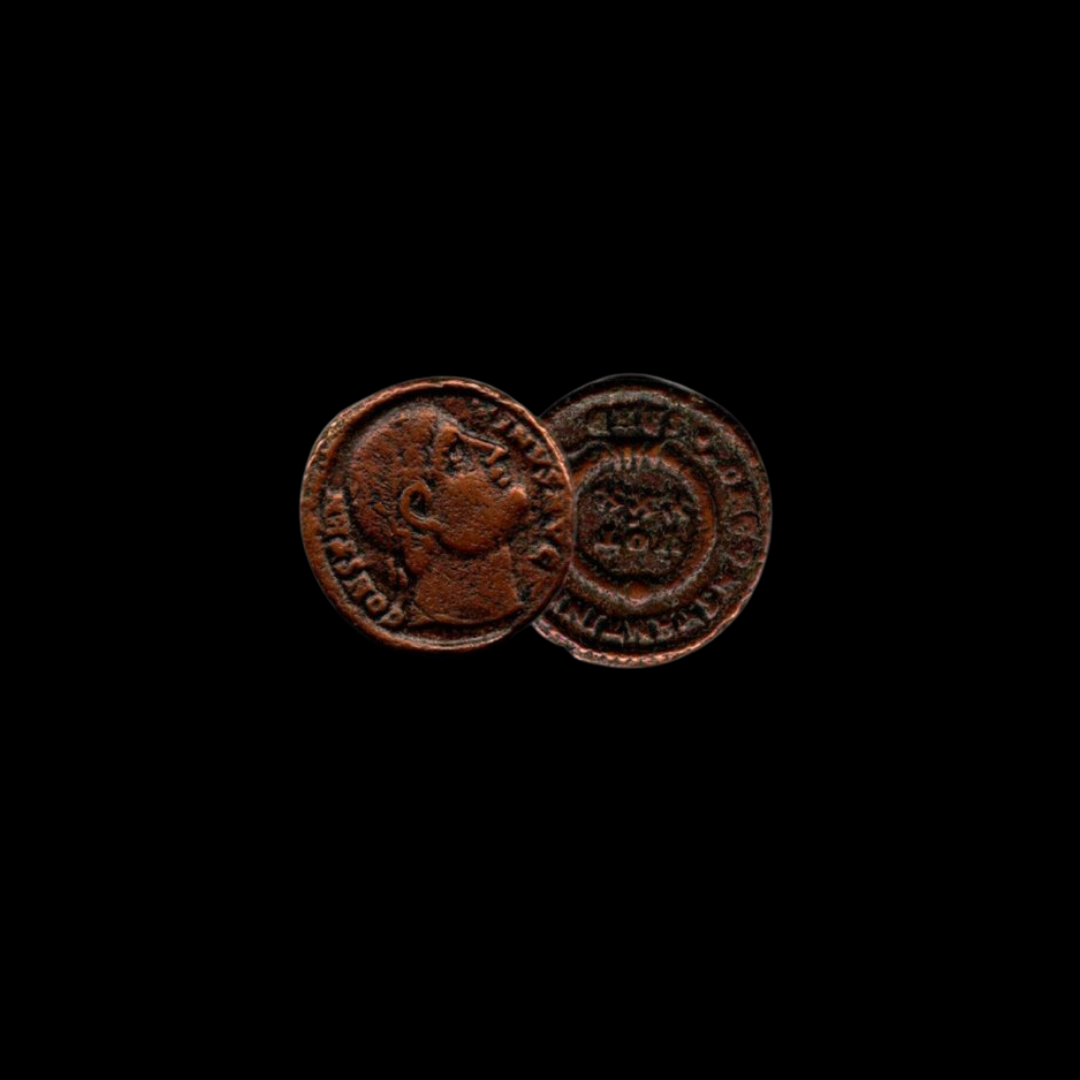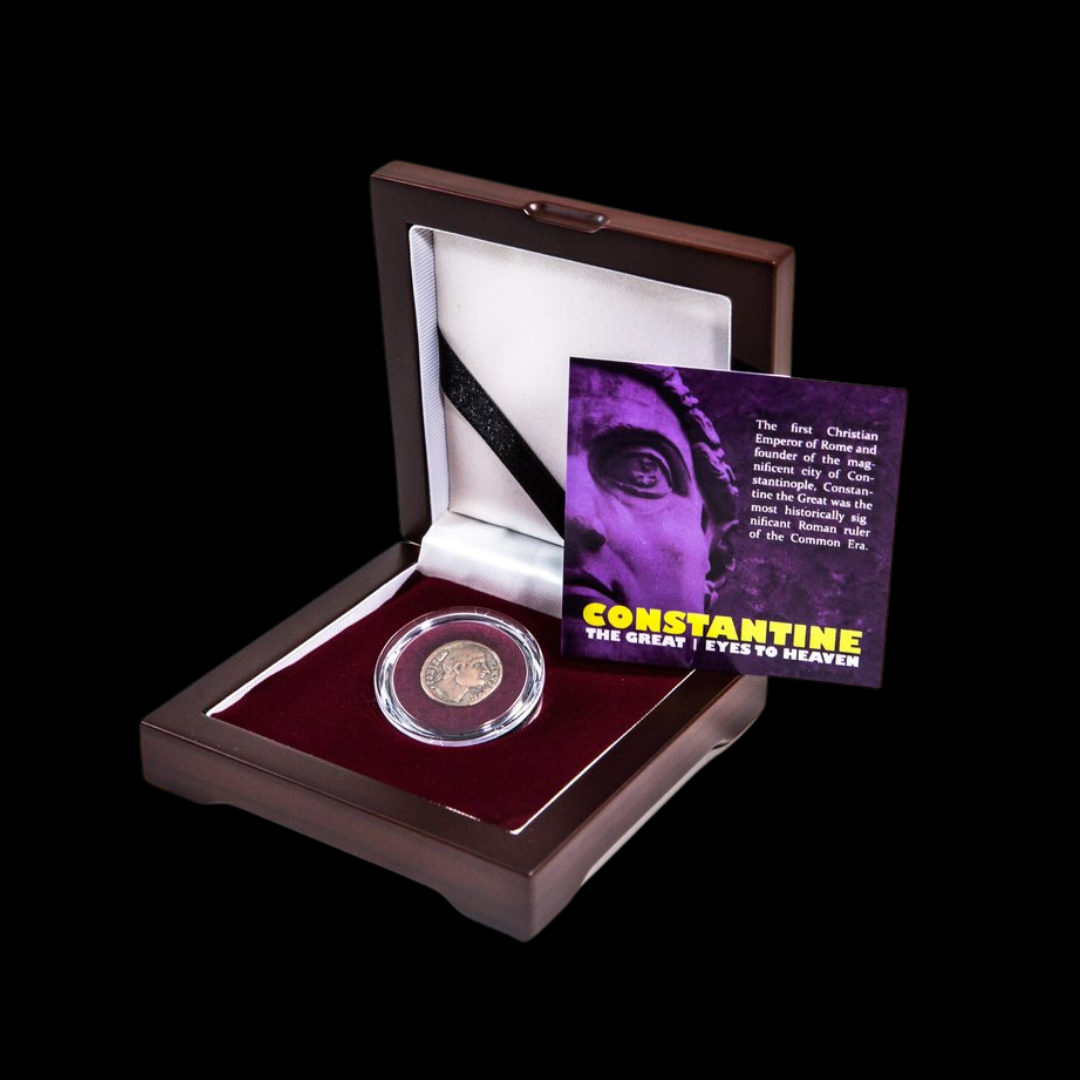 Image 1 of 6
Image 1 of 6

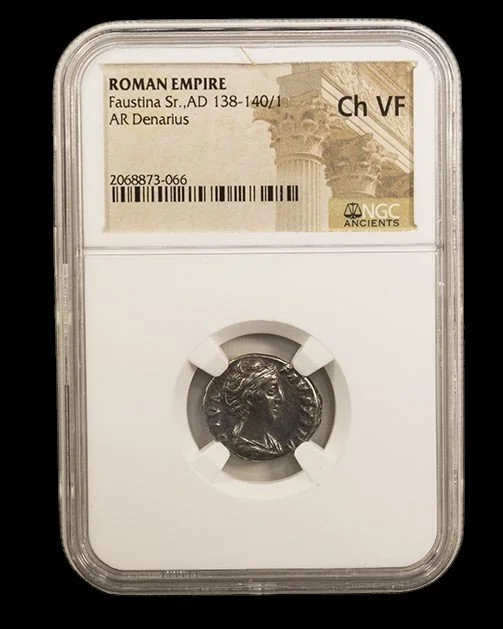 Image 2 of 6
Image 2 of 6

 Image 3 of 6
Image 3 of 6

 Image 4 of 6
Image 4 of 6

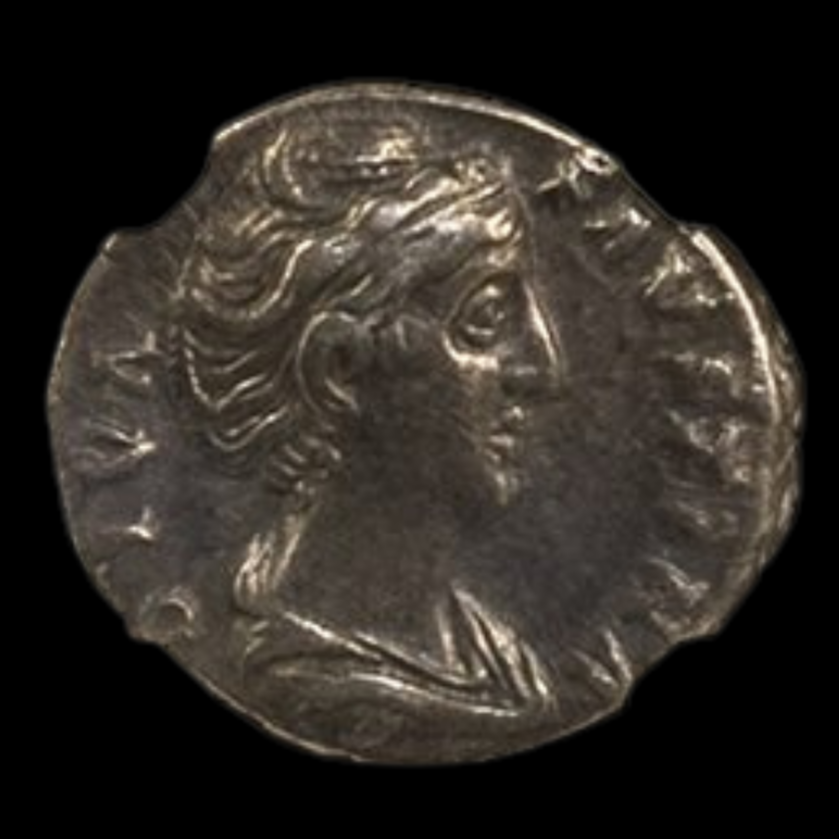 Image 5 of 6
Image 5 of 6

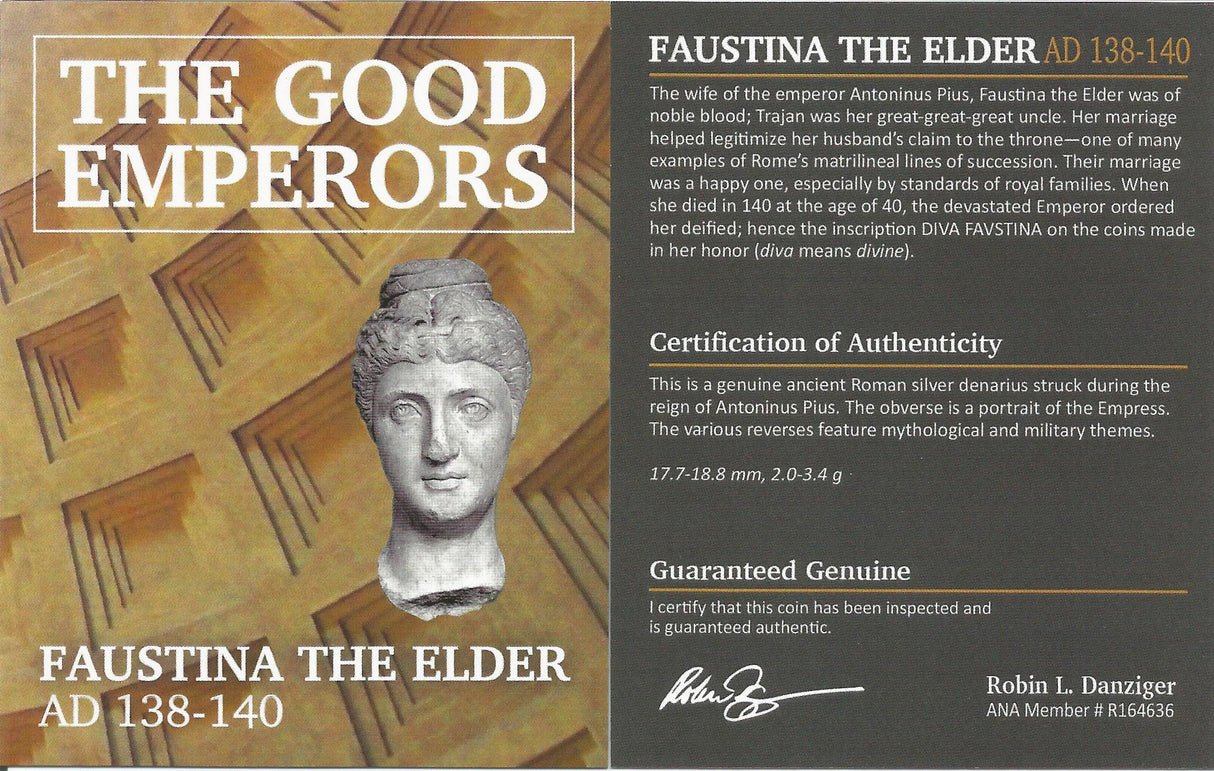 Image 6 of 6
Image 6 of 6







Ancient Roman Silver Coin of Empress Faustina the Elder (Wife of Emperor Antoninus Pius)
The coins shown are representative examples of the grade and type, but not the actual specimens for sale. For details on NGC’s grading standards and definitions, please refer to our NGC Grading page.
This silver denarius commemorates Faustina the Elder, wife of Emperor Antoninus Pius and an imperial woman whose posthumous deification established an important precedent for imperial family cult practices. Issued after her premature death, this coin with its "DIVA FAVSTINA" inscription represents the deep affection her husband held for her and the significant religious honors accorded to imperial women during Rome's most prosperous era.
Coin Description:
Front side: Portrait of Empress Faustina the Elder facing right, typically shown with a characteristic hairstyle of waved and plaited hair gathered at the back, with Latin inscription "DIVA FAVSTINA" (Divine Faustina) indicating her deified status
Back side: Likely depicts either Ceres, Vesta, Juno, or a personification such as Aeternitas (Eternity) or Pietas (Piety), with accompanying Latin text
Technical Details:
Silver composition
Denomination: Denarius
NGC certified
Minted between 138-140 AD (posthumously after her death)
Condition as certified by NGC
Historical Significance: Faustina the Elder came from distinguished Roman nobility, with family connections to Emperor Trajan, lending important legitimacy to her husband Antoninus Pius when he was adopted by Emperor Hadrian as heir to the throne. Their apparently harmonious marriage stood as an example of Roman family virtue during the height of imperial prosperity. When she died in 140 AD after only two years as empress, Antoninus was so grief-stricken that he took extraordinary measures to honor her memory. Besides the posthumous coin series bearing the "DIVA FAVSTINA" inscription, he established the alimenta Faustiniana, a charitable foundation for orphaned girls, and built a temple dedicated to her in the Roman Forum which still partially stands today. Her deification established important precedents for later empress worship, demonstrating how imperial women, even without formal political power, could achieve significance in Roman religious and cultural life.
The coins shown are representative examples of the grade and type, but not the actual specimens for sale. For details on NGC’s grading standards and definitions, please refer to our NGC Grading page.
This silver denarius commemorates Faustina the Elder, wife of Emperor Antoninus Pius and an imperial woman whose posthumous deification established an important precedent for imperial family cult practices. Issued after her premature death, this coin with its "DIVA FAVSTINA" inscription represents the deep affection her husband held for her and the significant religious honors accorded to imperial women during Rome's most prosperous era.
Coin Description:
Front side: Portrait of Empress Faustina the Elder facing right, typically shown with a characteristic hairstyle of waved and plaited hair gathered at the back, with Latin inscription "DIVA FAVSTINA" (Divine Faustina) indicating her deified status
Back side: Likely depicts either Ceres, Vesta, Juno, or a personification such as Aeternitas (Eternity) or Pietas (Piety), with accompanying Latin text
Technical Details:
Silver composition
Denomination: Denarius
NGC certified
Minted between 138-140 AD (posthumously after her death)
Condition as certified by NGC
Historical Significance: Faustina the Elder came from distinguished Roman nobility, with family connections to Emperor Trajan, lending important legitimacy to her husband Antoninus Pius when he was adopted by Emperor Hadrian as heir to the throne. Their apparently harmonious marriage stood as an example of Roman family virtue during the height of imperial prosperity. When she died in 140 AD after only two years as empress, Antoninus was so grief-stricken that he took extraordinary measures to honor her memory. Besides the posthumous coin series bearing the "DIVA FAVSTINA" inscription, he established the alimenta Faustiniana, a charitable foundation for orphaned girls, and built a temple dedicated to her in the Roman Forum which still partially stands today. Her deification established important precedents for later empress worship, demonstrating how imperial women, even without formal political power, could achieve significance in Roman religious and cultural life.






